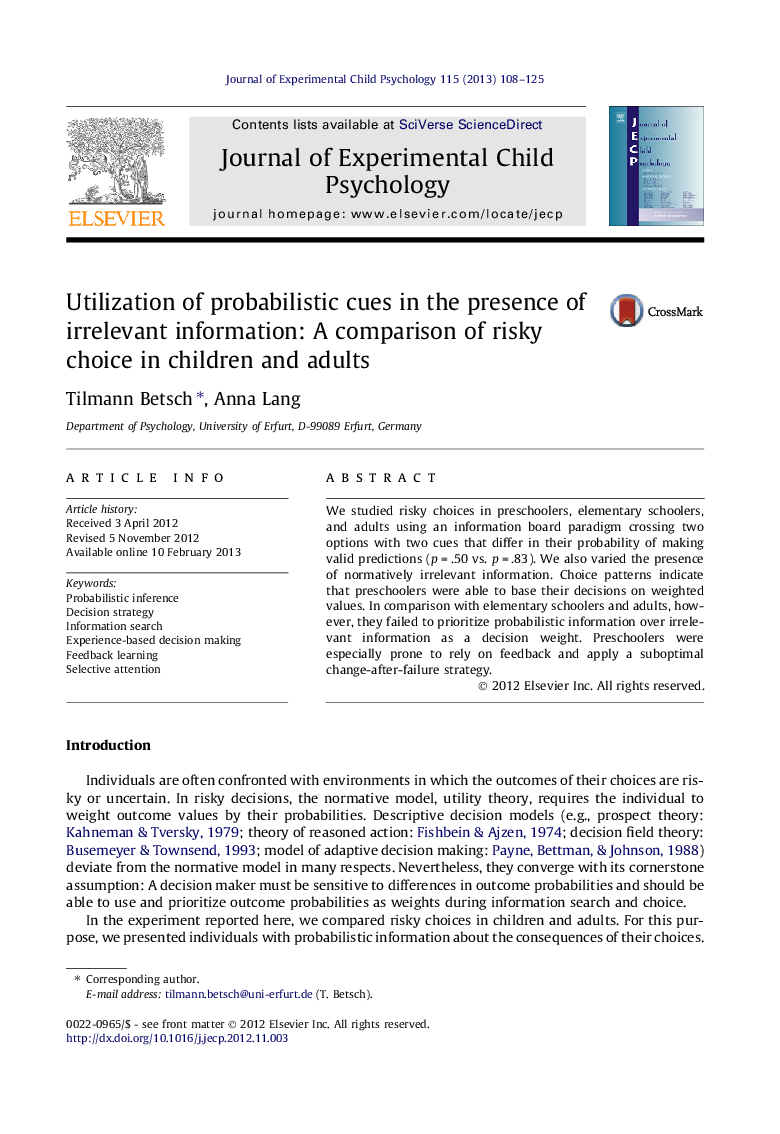| Article ID | Journal | Published Year | Pages | File Type |
|---|---|---|---|---|
| 918195 | Journal of Experimental Child Psychology | 2013 | 18 Pages |
We studied risky choices in preschoolers, elementary schoolers, and adults using an information board paradigm crossing two options with two cues that differ in their probability of making valid predictions (p = .50 vs. p = .83). We also varied the presence of normatively irrelevant information. Choice patterns indicate that preschoolers were able to base their decisions on weighted values. In comparison with elementary schoolers and adults, however, they failed to prioritize probabilistic information over irrelevant information as a decision weight. Preschoolers were especially prone to rely on feedback and apply a suboptimal change-after-failure strategy.
► We introduced a new tool for studying risky choices and information search in children. ► Preschoolers were able to base their decisions on weighted values. ► Forty one percent preschoolers, 60% schoolers, 96% adults tend to use probabilities as weights. ► Preschoolers failed to prioritize probabilities over irrelevant information as weights. ► Preschoolers were especially prone to apply feedback based decision strategies.
